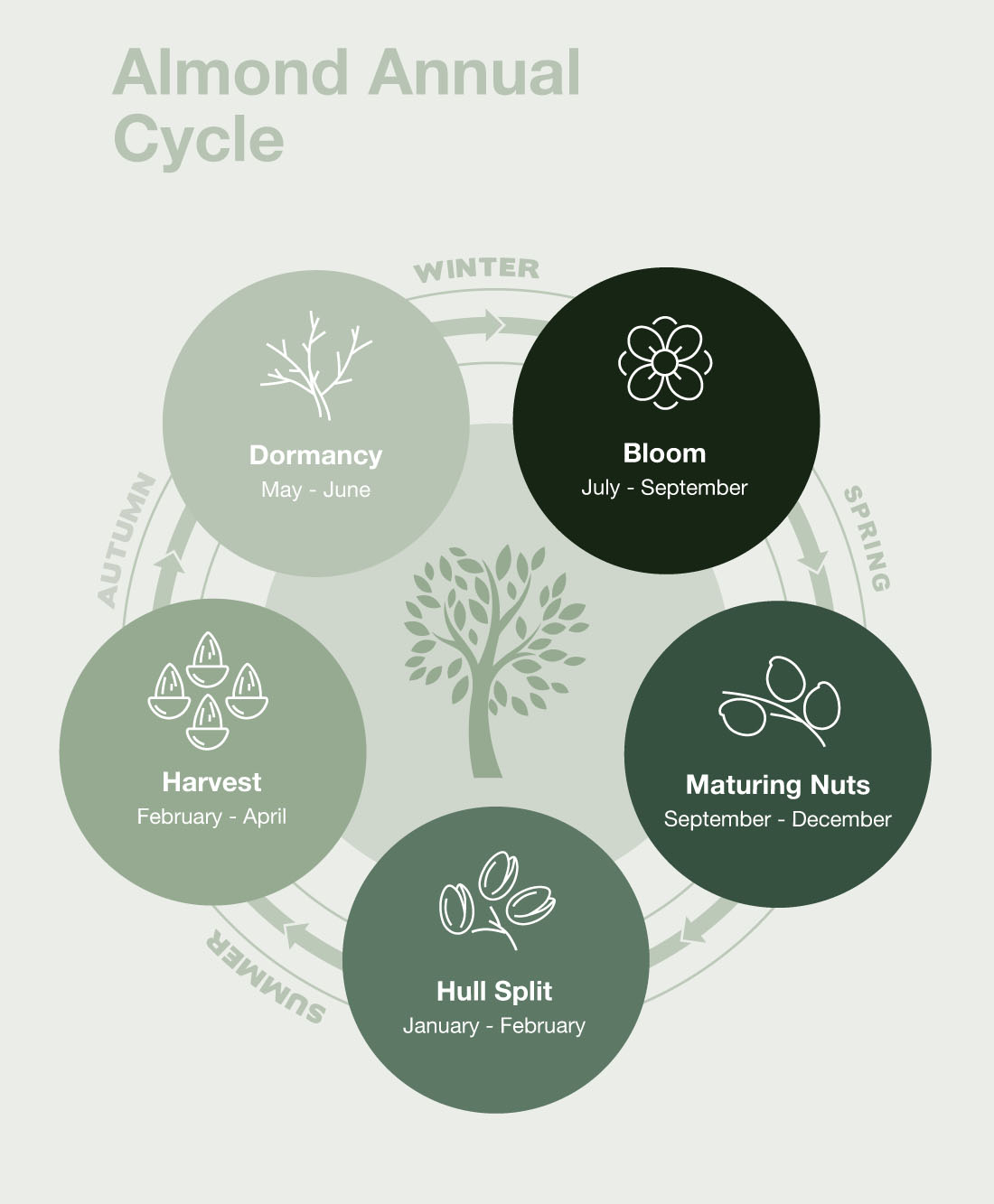Nutrient dense – healthy fats – Dietary fibre
nuts: plant based better for you
almonds are nutrient-dense plant food
Almonds are considered one of the most nutrient-dense foods available
almonds are rich in healthy fats and protein
a single 30-gram serving contains about 6 grams of protein and 13 grams of healthy unsaturated fat
Almonds are Full of dietary fibre
This fibre content supports digestive health, aids weight management by promoting fullness, and contributes to lower blood sugar levels
Almond & Health
Smart Nutrition, Naturally
Almonds are naturally packed with protein, fibre, and healthy fats, making them a smart snack for people on the go. Enjoyed in moderation, they help keep you feeling fuller for longer and provide lasting energy throughout the day. Whether you’re looking for a nutritious snack or a versatile ingredient, our almonds are a simple, wholesome choice you can feel good about.
smart choice for a balanced diet
A handful of almonds a day
Health professionals recommend eating a 30g handful of almonds daily to help improve cardiovascular health and support overall wellbeing. Whether enjoyed as a snack or used in a wide range of food applications, almonds are a smart choice for a balanced diet.
nutritional powerhouse
the almond advantage
Almonds are a nutrient-rich and versatile food, offering one of the most affordable sources of plant-based protein across all food categories. They’re packed with essential nutrients, including:
everyday nutrition
proven health benefits
There are plenty of reasons to feel confident about adding a handful of almonds to your daily diet. Backed by numerous scientific studies, almonds have been shown to support heart health and may help reduce the risk of heart disease.
Rich in healthy fats, vitamin E, magnesium, and antioxidants, almonds offer a powerful combination of nutrients that contribute to overall wellness. Their versatility and proven health benefits make them a smart, satisfying choice for everyday nutrition.
five phases in the year
annual almond tree cycle
dormancy
Almond trees are dormant over the colder winter period, around May to July in Australia.
bloom
Blossom usually occurs from late July to early September. Bees are used to cross-pollinate.
maturing nuts
The fuzzy greyish-green fruit begins to grow rapidly from September to December. The hulls continue to harden and the kernel begins to increase in weight.
hull split
Once the fruit has finished growing, the hull begins to split during summer, from early January.
harvest
Harvest occurs between February and April, when the nut is at an acceptable moisture level.





